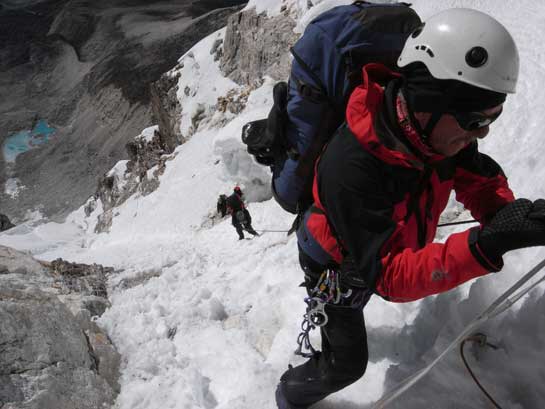Life is based on risk. We would not have been born unless our mothers took risks, yet the modern world seems to be hell bent on removing them. When I say removing, should I say eradicating them and stersalising life. We have evolved as human beings by taking risks – from planting the first crops to crossing the great oceans of our world.
Many mistakes have been made, but we have learned by them and bettered ourselves, and humanity as a result. The fear with removing them is that progress is slowed and lessons go unlearned. You can tell a child that nettles sting, but they will never fully understand the concequences until they have fallen into a bed of them. I remember clearly as a boy running home, streaming with tears because I had an arm covered in little bumps.
Wrapping me up in cotton wool would have been the worse thing my parents could have ever done to me.
Of course, people look at risks in many different ways. Who can remember the first time they asked someone out? Was your heart pumping and your body tingling? (If not, you weren’t serious about what you were doing). There were two outcomes, one filled with an explosion of joy, the other a devastating blow to your hopes. How we pick ourselves up is what matters. It’s a lesson I learned the hard way by suffering severe frostbite. I took a number of risks climbing Mt. McKinley and it almost cost me my life. I had no choice about my injuries and their treatment, but I did have a choice on how I stood up in society and in my life. I’ve faced many fears on my journey to recovery, yet my desire to climb is still strong. The picture above was taken whist I was descending Ama Dablam in Nepal. A few moments later the abseil anchor failed and I went hurtling down the ice. Thankfully I stopped, gathered myself and kept going for another seventeen more abseils.
I’ve worked in industries which are so risk averse that hardly anything gets done. More paperwork is filled in before any work has begun that it becomes farcical. In my experience, people put up blinkers in these situations. They are more concentrated on the form filling than the actual danger that exists. Training and common sense must prevail. I can just imagine, sitting there in base camp with a pile of paperwork to complete about this risk or that. We’d never leave camp. Actually we might have not even got there in the first place due to the journey required!
Thankfully most risks are not life threatening. One of the most common risks people fear is standing before an audience and speaking. I have seen people turn into gibbering wrecks at just the thought of it, but what harm can it do? Risk can be mitigated by preparation, training and rehersal. I don’t know of any climbers who tackle a huge face with no experience or equipment. We plan, train both physically and mentally, assess the weather, time of year etc, before we even stand at the bottom of the route. Speakers should do the same. Knowledge of your subject, presentation, timings etc is vital, particurarly as things can quickly change. I’ve forgotten how many times I’ve been told “we were hoping to have you on stage for 45mins, but can you squeeze it into 30?” Here is where your preperation comes into play as you decide what to leave out, yet still deliver your message.
So far in life I’ve had four major adveture epics, had my heart broken, suffered a continous fear of heights, but still I go back for more. I know the risks, but I learn from them. Do you..?
May I wish you all a wonderful 2012.
